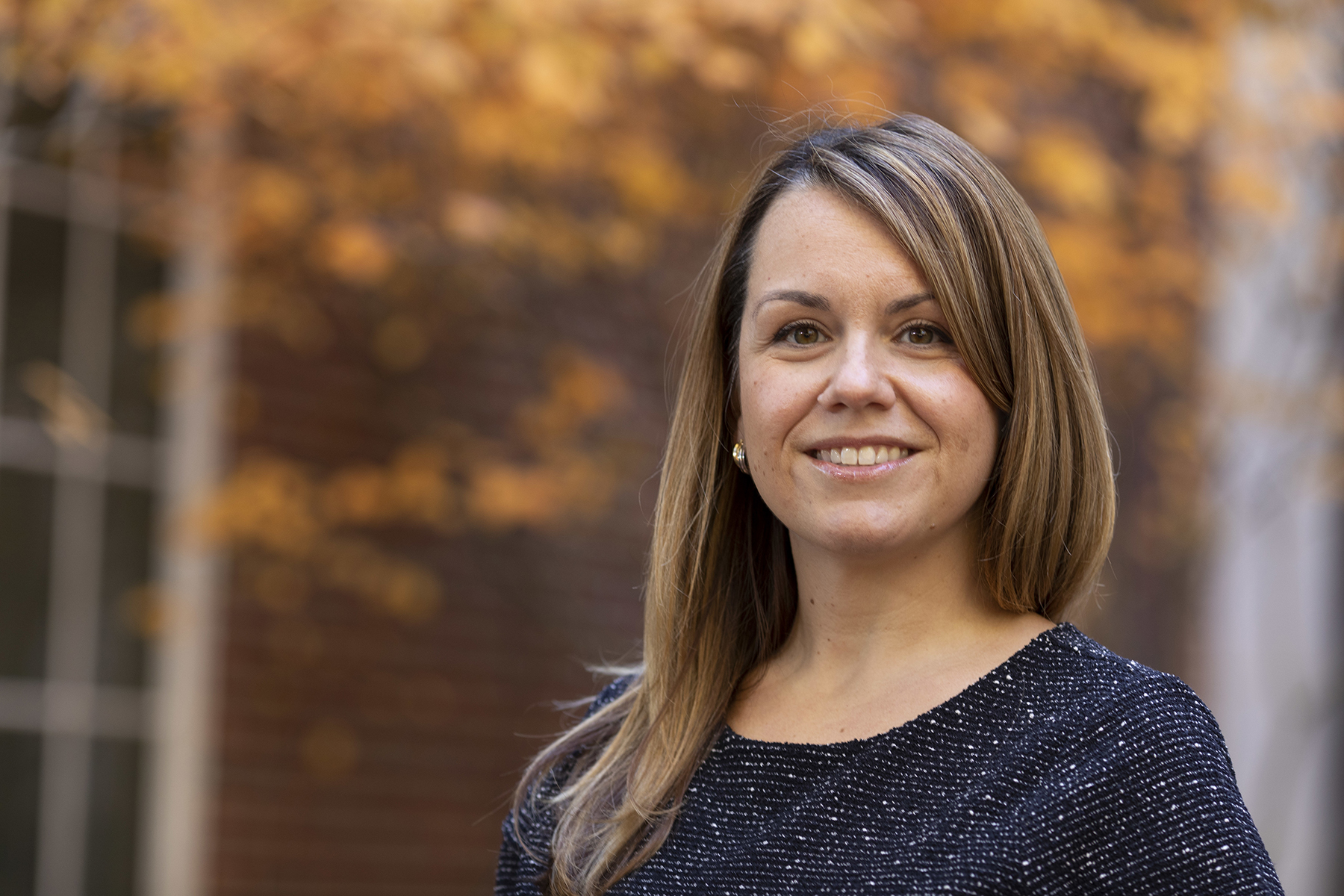It starts with a spark. The glimmer of understanding when a student makes the connection between their personal lives and international relations. The moment it just clicks.
“When they get excited, it makes me excited,” said Maryann Gallagher.
Gallagher is a senior lecturer in the School of Public and International Affairs’ department of international affairs and the director of the Richard B. Russell Security Leadership Program in the Center for International Trade and Security. With deep-rooted research interests in American foreign policy, decision-making and gender in international relations, her background might surprise you.
“I was pre-med in undergrad,” she said with a laugh. “I took a course in the spring of my freshman year called Europe and World Affairs, and it completely changed my world. I convinced my mom that it would be the best way for me to get into med school if I was a political science major, because I’d be a non-conventional applicant.”
Along with internships at hospitals and medical facilities to fulfill her pre-med requirements, she also participated in internships at the European Parliament and nongovernmental organizations. After graduation, Gallagher took a teaching position at an elementary school, and it was in those years that she discovered her real passion.
“What became very clear to me was that I didn’t want to go to medical school anymore. I loved teaching,” she said.
And she never looked back. She earned her Ph.D. in political science from Emory University, and prior to joining the faculty at UGA in 2014, she was an assistant professor at DePauw University. Now, Gallagher teaches classes such as Women and World Politics, War and Gender, and American Foreign Policy.
In 2020, she added the title of SLP director to her resume. The SLP is a yearlong academic program designed to increase a student’s ability to understand, analyze and create policy related to national security and management of international conflict.
It was the second semester requirement that sealed the deal to bring Gallagher on board. Students enroll in an advanced research course, where they complete a faculty-supervised independent research project on an issue relevant to national, international or human security.
“This seemed like an opportunity that really aligned with my research interests. I teach U.S. foreign policy and decision-making in international relations, so this work was already in my wheelhouse in terms of substantive issues that I’m interested in,” she said. “But I was also excited to work with these students on the research component. I love supervising undergraduate research. There’s so much opportunity for helping foster student research interests and empowering students through the research process.”
While the COVID-19 pandemic led to an unusual first year in this new role, she made the most of it through virtual classes, small group meetings and alumni visits. The highlight of the fall semester was a two-week simulation of the National Security Council. Each student played the role of a member of the NSC (president, secretary of state, secretary of defense, etc.) and were given three crisis scenarios. During the simulation, new “crises” would arise, mimicking for them the experience of what some people in the policy-making world call “drinking from the fire hose.”
“It gave them phenomenal policy writing experience and public speaking skills in terms of their ability to brief each other. Having to respond really quickly to new crises taught them how to triage and deal with unexpected situations,” Gallagher said.
As the 2021-22 academic year brings more normalcy back to her role, Gallagher is looking forward to the “crown jewel” of the SLP: the annual spring break trip to Washington, D.C. While the itinerary for the trip varies from year to year, past trips have included visits to meet with practitioners from security-relevant government agencies (Department of State, Department of Energy/NNSA, Department of Commerce, Department of Defense, FBI and intelligence agencies) and think tanks (Center for Strategic & International Studies, Carnegie Endowment for International Peace and others).
While her path may have veered from treating patients and curing diseases, she certainly is changing the world by training the next generation of global leaders, so it comes as no surprise that her favorite part of UGA is teaching and mentoring her students.
“Our international affairs majors are spectacular. They want to make the world a better place, and so they are just deeply engaged. I love working with students like that. It’s incredibly rewarding,” she said.


